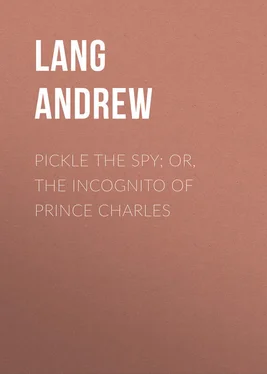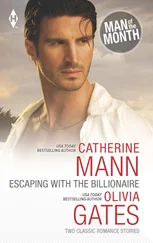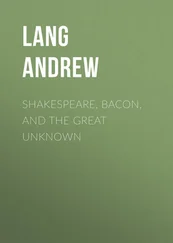Andrew Lang - Pickle the Spy; Or, the Incognito of Prince Charles
Здесь есть возможность читать онлайн «Andrew Lang - Pickle the Spy; Or, the Incognito of Prince Charles» — ознакомительный отрывок электронной книги совершенно бесплатно, а после прочтения отрывка купить полную версию. В некоторых случаях можно слушать аудио, скачать через торрент в формате fb2 и присутствует краткое содержание. Жанр: foreign_antique, foreign_prose, на английском языке. Описание произведения, (предисловие) а так же отзывы посетителей доступны на портале библиотеки ЛибКат.
- Название:Pickle the Spy; Or, the Incognito of Prince Charles
- Автор:
- Жанр:
- Год:неизвестен
- ISBN:нет данных
- Рейтинг книги:4 / 5. Голосов: 1
-
Избранное:Добавить в избранное
- Отзывы:
-
Ваша оценка:
- 80
- 1
- 2
- 3
- 4
- 5
Pickle the Spy; Or, the Incognito of Prince Charles: краткое содержание, описание и аннотация
Предлагаем к чтению аннотацию, описание, краткое содержание или предисловие (зависит от того, что написал сам автор книги «Pickle the Spy; Or, the Incognito of Prince Charles»). Если вы не нашли необходимую информацию о книге — напишите в комментариях, мы постараемся отыскать её.
Pickle the Spy; Or, the Incognito of Prince Charles — читать онлайн ознакомительный отрывок
Ниже представлен текст книги, разбитый по страницам. Система сохранения места последней прочитанной страницы, позволяет с удобством читать онлайн бесплатно книгу «Pickle the Spy; Or, the Incognito of Prince Charles», без необходимости каждый раз заново искать на чём Вы остановились. Поставьте закладку, и сможете в любой момент перейти на страницу, на которой закончили чтение.
Интервал:
Закладка:
No such passage occurs in Elcho’s diary. He says that, after the flight, he found Charles, in the belief that he had been betrayed, anxious only for his Irish officers, and determined to go to France, not to join the clans at Ruthven. Elcho most justly censured and resolved ‘never to have anything more to do with him,’ a broken vow! 12 12 Ewald, ii. 30. Scott’s Journal, i. 114.
As a matter of fact, Sir Robert Strange saw Charles vainly trying to rally the Highlanders, and Sir Stuart Thriepland of Fingask gives the same evidence. 13 13 Dennistoun’s Life of Strange , i. 63, and an Abbotsford manuscript.
In his seclusion during 1750, Charles wrote a little memoir, still unpublished, about his Highland wanderings. In this he says that he was ‘led off the field by those about him,’ when the clans broke at Culloden. ‘The Prince then changed his horse, his own having been wounded by a musket-ball in the shoulder.’ 14 14 Stuart Papers, in the Queen’s Library. Also the Lockhart Papers mention the wounding of the horse.
The second-hand chatter of Hume, in his letter to Sir John Pringle (February 13, 1773), is unworthy of serious attention.
Helvetius told Hume that his house at Paris had sheltered the Prince in the years following his expulsion from France, in 1748. He called Charles ‘the most unworthy of mortals, insomuch that I have been assured, when he went down to Nantz to embark on his expedition to Scotland, he took fright and refused to go on board; and his attendants, thinking the matter gone too far, and that they would be affronted for his cowardice, carried him in the night time into the ship, pieds et mains liés .’
The sceptical Hume accepts this absurd statement without even asking, or at least without giving, the name of Helvetius’s informant. The adventurer who insisted on going forward when, at his first landing in Scotland, even Sir Thomas Sheridan, with all the chiefs present, advised retreat, cannot conceivably have been the poltroon of Hume’s myth. Even Hume’s correspondent, Sir John Pringle, was manifestly staggered by the anecdote, and tells Hume that another of his fables is denied by the very witness to whom Hume appealed. 15 15 Life and Correspondence of David Hume . Hill Burton, ii. 464–466.
Hume had cited Lord Holdernesse for the story that Charles’s presence in London in 1753 (1750 seems to be meant) was known at the time to George II. Lord Holdernesse declared that there was nothing in the tale given by Hume on his authority! That Charles did not join the rallied clans at Ruthven after Culloden was the result of various misleading circumstances, not of cowardice. Even after 1746 he constantly carried his life in his hand, not only in expeditions to England (and probably to Scotland and Ireland), but in peril from the daggers of assassins, as will later be shown.
High-spirited and daring, Charles was also hardy. In Italy he practised walking without stockings, to inure his feet to long marches: he was devoted to boar-hunting, shooting, and golf. 16 16 Jacobite Memoirs . Lord Elcho’s MS. Journal. Ewald, i. 77.
He had no touch of Italian effeminacy, otherwise he could never have survived his Highland distresses. In travelling he was swift, and incapable of fatigue. ‘He has,’ said early observer, ‘ the habit of keeping a secret .’ Many secrets, indeed, he kept so well that history is still baffled by them, as diplomatists were perplexed between 1749 and 1766. 17 17 State Papers Domestic. 1745. No. 79.
We may discount Murray of Broughton’s eulogies Charles’s Greek, Latin, and Hebrew, and his knowledge of history and philosophy, though backed by the Jesuit Cordara. 18 18 Genuine Memoirs of John Murray of Broughton . La Spedizione di Carlo Stuart .
Charles’s education had been interrupted by quarrels between his parents about Catholic or Protestant tutors. His cousin and governor, Sir Thomas Sheridan (a descendant of James II.), certainly did not teach him to spell; his style in French and English is often obscure, and, when it is clear, we know not whether he was not inspired by some more literary adviser. In matters of taste he was fond of music and archæology, and greatly addicted to books. De Brosses, however, considered him ‘less cultivated than Princes should be at his age,’ and d’Argenson says that his knowledge was scanty and that he had little conversation. A few of his books, the morocco tooled with the Prince of Wales’s feathers, remain, but not enough to tell us much about his literary tastes. On these, however, we shall give ample information. In Paris, after Culloden, he bought Macchiavelli’s works, probably in search of practical hints on state-craft. In spite of a proclamation by Charles, which Montesquieu applauded, he certainly had no claim to a seat in the French Academy, which Montesquieu playfully offered to secure for him.
In brief, Charles was a spirited, eager boy, very capable of patience, intensely secretive, and, as he showed in 1745–1746, endowed with a really extraordinary clemency, and in one regard, where his enemies were concerned, with a sense of honour most unusual in his generation. His care for the wounded, after Prestonpans, is acknowledged by the timid and Whiggish Home, in his ‘History of the Rebellion,’ and is very warmly and gracefully expressed in a letter to his father, written at Holyrood.’ 19 19 Treasury Papers. 1745. No. 214. First published by Mr. Ewald, i. 215.
He could not be induced to punish miscreants who attempted his life and snapped pistols in his face. He could hardly be compelled to retort to the English offer of 30,000 l. for his head by issuing a similar proclamation about ‘the Elector.’ ‘I smiled and created it’ (the proclamation of a reward of 30,000 l. for his head) ‘with the disdain it deserved, upon which they’ (the Highlanders) ‘flew into a violent rage, and insisted upon my doing the same by him.’ This occurs in a letter from Charles to James, September 10, 1745, dated from Perth. A copy is found among Bishop Forbes’s papers. Here Charles deplores the cruelties practised under Charles II. and James II., and the consequent estrangement of the Duke of Argyll. 20 20 Jacobite Memoirs , p. 32.
In brief, the contest between Charles and Cumberland was that of a civilised and chivalrous commander against a foe as treacherous and cruel as a Huron or an Iroquois. On this point there is no possibility of doubt. The English Government offered a vast reward for Charles, dead or alive. The soldiers were told significantly, by Cumberland, that he did not want prisoners. On the continent assassins lurked for the Prince, and ambassadors urged the use of personal violence. Meanwhile the Prince absolutely forbade even a legitimate armed attack directed mainly against his enemy, then red-handed from the murder of the wounded.
With this loyalty to his foes, with this clemency to enemies in his power, Charles certainly combined a royal grace, and could do handsome things handsomely. Thus, in 1745, some of the tenants of Oliphant of Gask would not don the white cockade at his command. He therefore ‘laid an arrest or inhibition on their corn-fields.’ Charles, finding the grain hanging dead-ripe, as he marched through Perthshire, inquired the cause, and when he had learned it, broke the ‘taboo’ by cutting some ears with his sword, or by gathering them and giving them to his horse, saving that the farmers might now, by his authority, follow his example and break the inhibition. 21 21 Chambers Rebellion of 1745, i. 71. The authority is ‘Tradition.’
Making every allowance for an enthusiasm of loyalty on the part of the narrators in Bishop Forbes’s MS. ‘Lyon in Mourning’ (partly published by Robert Chambers in ‘Jacobite Memoirs’ 22 22 I have read parts of Forbes’s manuscript in the Advocates’ Library, but difficulties were made when I wished to study it for this book.
), it is certain that the courage, endurance, and gay content of the Prince in his Highland wanderings deserve the high praise given by Smollett. Thus, in many ways we see the elements of a distinguished and attractive character in Charles. His enemies, like the renegade Dr. King, of St. Mary’s Hall (ob. 1763), in his posthumous ‘Anecdotes,’ accused the Prince of avarice. He would borrow money from a lady, says King, while he had plenty of his own; he neglected those who had ruined themselves for his sake. Henry Goring accused the Prince of shabbiness to his face, but assuredly he who insisted on laying down money on the rocks of a deserted fishers’ islet to pay for some dry fish eaten there by himself and his companions – he who gave liberally to gentle and simple out of the treasure buried near Loch Arkaig, who refused a French pension for himself, and asked favours only for his friends – afforded singular proofs of Dr. King’s charge of selfish greed. The fault grew on him later. After breaking with the French Court in 1748, Charles had little or nothing of his own to give away. His Sobieski jewels he had pawned for the expenses of the war, having no heart to wear them, he said, ‘on this side of the water.’ He was often in actual need, though we may not accept d’Argenson’s story of how he was once seen selling his pistols to a gun-maker. 23 23 D’Argenson’s Mémoires .
If ever he was a miser, that vice fixed itself upon him in his utter moral ruin.
Интервал:
Закладка:
Похожие книги на «Pickle the Spy; Or, the Incognito of Prince Charles»
Представляем Вашему вниманию похожие книги на «Pickle the Spy; Or, the Incognito of Prince Charles» списком для выбора. Мы отобрали схожую по названию и смыслу литературу в надежде предоставить читателям больше вариантов отыскать новые, интересные, ещё непрочитанные произведения.
Обсуждение, отзывы о книге «Pickle the Spy; Or, the Incognito of Prince Charles» и просто собственные мнения читателей. Оставьте ваши комментарии, напишите, что Вы думаете о произведении, его смысле или главных героях. Укажите что конкретно понравилось, а что нет, и почему Вы так считаете.












